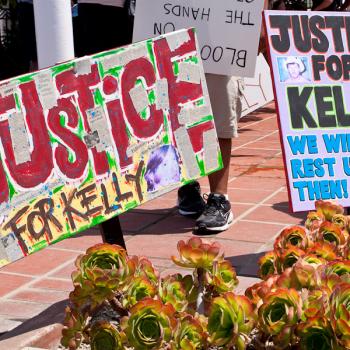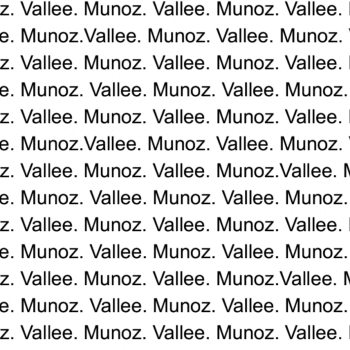
The best apology is changed behavior.
At least that’s what I tell my kids. I know it’s trite and reductive, but it’s not untrue. For the last few years, I’ve been somewhat obsessed with apologies. I’ve been dissecting and ruminating on them in ways I hadn’t given much thought to before. I’ve been reflecting upon apologies in the context of relational trauma, loss of friendships and community, leadership errors, shared mistakes, and the part I played in all of those things. Coming out of a marriage where things could have potentially turned out differently with a few genuine apologies, I’ve been giving great thought to the apologies I wish I’d received, as well as the ones I wish I’d offered. And not just to my ex, but to others whom I have unintentionally, but genuinely hurt over the years. And while that is an an entirely different blog post, I mention it because if apologies are sincere, they require from us an immense amount of self reflection, self awareness, empathy, remorse, and willingness to change behavior that has hurt or offended another. I’m working on that. We should all be working on that.
On November 2 of 2010, my brother sent me an email telling me that he no longer wanted to speak to or be in relationship with me. Just like that, we were done. In an instant, there was no more texting, phone calls, random King of The Hill references, Simpsons jokes, conversations about God, political discussions, childhood reminiscing, visits with my kids, birthdays, holidays, or Christmas mornings where I threw all of the discarded gift wrap at him because some family traditions just stick.
Sometimes you can grow up in the same space and have dramatically different experiences and such was true for my brother and I. After years of childhood trauma and abuse, I turned to drugs and alcohol. The result was an addiction that devastated and traumatized the family in countless ways. Addiction is a bitch friends, and if I’m being really honest, so was I. I pushed everyone to the limit and my parents eventually kicked me out of the house. My relationship with my brother never fully recovered and it was never the same. All of my choices had reasons behind them, but none of that lessens the impact on the people involved. None of that negates my family deserving genuine remorse and repentance from me.
Eventually, I got pregnant, sober, and married. In that order. I sincerely grieved the pain I’d caused, and so I asked for forgiveness on multiple occasions for a variety of things over the years. My point isn’t that I magically got my shit together. Sometimes it takes a while to realize what we’ve done. On the contrary, it took time. I started gradually living a life where healing and growth was evident and, in time, attempted to rebuild our relationship. After years of silence around how he’d felt, my brother came to me and admitted he “just couldn’t do it.” I was stunned, but understood. I encouraged him to take the space he needed and offered to join him in family therapy when he was ready so that we could move through this together and into a restored relationship.
That was almost 8 years ago. For the first few years, I attempted to patiently and hopefully reach out semi-annually, inviting him into a greater dialogue and checking in to see how he was doing. He wasn’t ready and he barely responded when he responded at all. Who could blame him, right? I surely couldn’t. A few years ago, I started to realize that I didn’t have a firm grasp on why he was no longer speaking to me and reached out for clarification. He obliged and it was eye opening. He held me responsible for a variety of things that were mine and for a variety of things that weren’t. I apologized for what I could, I pushed back gently on what was not mine to own, and continued to offer him an olive branch in the hopes we could heal and rebuild. I told him that I was concerned that the next time we would see each other would be at our parent’s funeral. I told him that I wanted all the loving and healthy things for him. I told him that I was always going to be here for him. I never heard from him again.
The moral of the story is that sometimes changed behavior isn’t enough. Apologies are complicated things, people. They require a great deal from us and others. Sometimes they require from us and others what we may not have. Sometimes we’re not ready to do the work. Sometimes we’re ready, but don’t know what to do or how to do it. Sometimes fear informs our decisions. Sometimes, a history of patterned behavior makes trying again too great a risk to chance. All of these are understandable. So what happens when you’re ready, but no one wants to accept your amends? What happens when someone has taken the time to do some personal work and attempt to right wrongs, but there’s no one there to listen? What happens when we want desperately to do the right thing, but have no way to do it? I’m reckoning with that lately.
I no longer underestimate the irony that parenting will bring into your everyday life as I’ve had to learn and relearn some of the very lessons I’ve wanted to make sure my children to absorb. Although I’ve tried hard to teach my kids how to apologize and why it’s so important, I’ve also had to teach them that sometimes they’re not going to get the reception they want. Sometimes, for a variety of reasons, people just aren’t ready to get over it and honoring that is a part of a true apology.
My brother is not obligated to accept my apology.
Apologies are what we do because it’s right and honorable. It’s what we do to show others we care about their feelings and that we understand how we’ve hurt them. It’s about showing them we care about the relationship that we want to preserve with them. It’s what we do when we want to honor their humanity and retain ours. Its’ treating others the way we’d want to be treated. No one wants a forced apology and no one wants a apology forced upon them. By it’s very nature, an apology requires two parties. To demand reception for your apology is the exact antithesis of what a repentant, life-giving apology is supposed to bring. And the reality is that for as much as I want my brother in my life, I don’t want him in my life at his expense. I don’t want him in my life for the sake of just having him there or so that my kids will know their uncle. That is not love, that is a hostage situation. And ironically, in these moments of hopeful waiting, I’ve learned to release him. I’ve learned how to let go, with little to no expectation that he or I will have any real relationship in the future. And although it occasionally makes me sad, I’ve actually found more peace and freedom in that than I ever expected. Even in the waiting, I hope that he’ll be open to reconciliation one day. But more than anything, I’m hoping he’s found freedom too.











